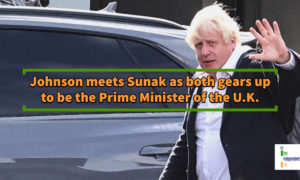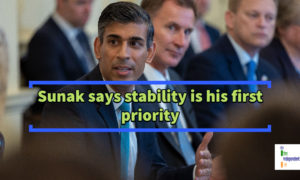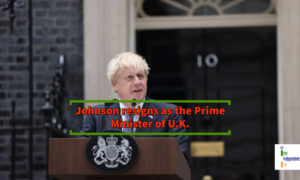
The sanctions include travel bans and freezing of assets to ensure they do not benefit in any way from the U.K.
The United Kingdom (U.K.) has announced sanctions on 6 allies of Syrian President Bashar al-Assad, for plunging the country into one of the world’s deadliest civil wars.
The sanctions come after 10 years of absolute violence and unrest in the country. The sanctioned allies include the Foreign Minister of Syria – Faisal Mekdad, al-Assad’s Adviser – Luna al-Shibl, al-Assad’s Financier – Yassar Ibrahim, a Businessman – Muhammad Bara’ Al-Qatirji, Republican Guard Commander – Malik Aliaa and Army Major – Zaid Salah.
The sanctions include travel bans and freezing of assets to ensure they do not benefit from the U.K. in any way.
Speaking on the occasion, the First Secretary of State and Foreign Secretary, U.K. – Dominic Raab said, “The Assad regime has subjected the Syrian people to a decade of brutality for the temerity of demanding peaceful reform.”
He further added, “We are holding six more individuals from the regime to account for their wholesale assault on the very citizens they should be protecting.”
This is the first time U.K. has imposed sanctions independently after leaving the European Unio (E.U.). It had earlier imposed sanctions as a member of the bloc.
Taking it to twitter, Raab tweeted,
10 years on from the first peaceful protests in Syria, I have announced new sanctions against six members of the brutal Assad regime. 🇬🇧 will hold to account those who violate the human rights of the Syrian people. https://t.co/IV3AqUYtz9 pic.twitter.com/RV4pvJYMfT
— Dominic Raab (@DominicRaab) March 15, 2021
The Syrian crisis dates back to 2011 with people complaining of high unemployment, corruption and a lack of political freedom under President Bashar al-Assad’s regime. In March 2011, pro-democracy demonstrations erupted in the Southern city of Deraa where the Government used deadly force to crush the protest. The uprising spread to major parts of the country. The major unrest happened on March 15, 2011 in the cities of Damascus and Aleppo where protestors were handled brutally. With time, the unrest spread across the country and the crackdown intensified. Later several other countries and groups joined the conflict.
Iran and Russia have been supporting the Bashar al-Assad’s Government. Russia has also conducted airstrikes and other military operations since September 2015. The U.S. led international coalition, established in 2014 to counter Islamic State of Iraq and the Levant (ISIL) also carried out airstrikes against ISIL members in Syria. Turkey has also been supporting U.S. since 2016. This added to the woes and miseries of war-torn Syria.
The United Nations Security Council (U.N.S.C.) has called for the implementation of the 2012 Geneva Communiqué, which envisages a transitional governing body to be formed on the basis of mutual consent. Despite 9 rounds of discussions, there hasn’t been much progress. President Assad appears unwilling to negotiate with the opposition. The rebels still insist he must step down as part of any settlement.
The U.K.’s Foreign Commonwealth and Development Office (FCDO) is also working through the U.N.S.C. to push Syria to engage meaningfully in a U.N.-led peace process and constitutional committee talks in Geneva. The FCDO has urged al-Assad’s Government to release those held in arbitrary detention and allow unhindered aid access throughout the country.
According to U.N., owing to war, nearly half a million people have been killed and more than half the pre-war population of 23 million displaced. The country’s economy is in tatters and vast swaths of infrastructure lie in ruins. More than 80% of Syrians live in poverty and 60% are at risk of hunger.
The U.K. says it has given more than £ 3.2 billion in aid to the Syria crisis over the past decade, including to countries housing refugees outside Syria. Recently, the U.K. Government has decided to cut the financial aid to Syria by 67%. The move is a part of reducing its overall international aid budget by about £ 4 billion in 2021-2022.







